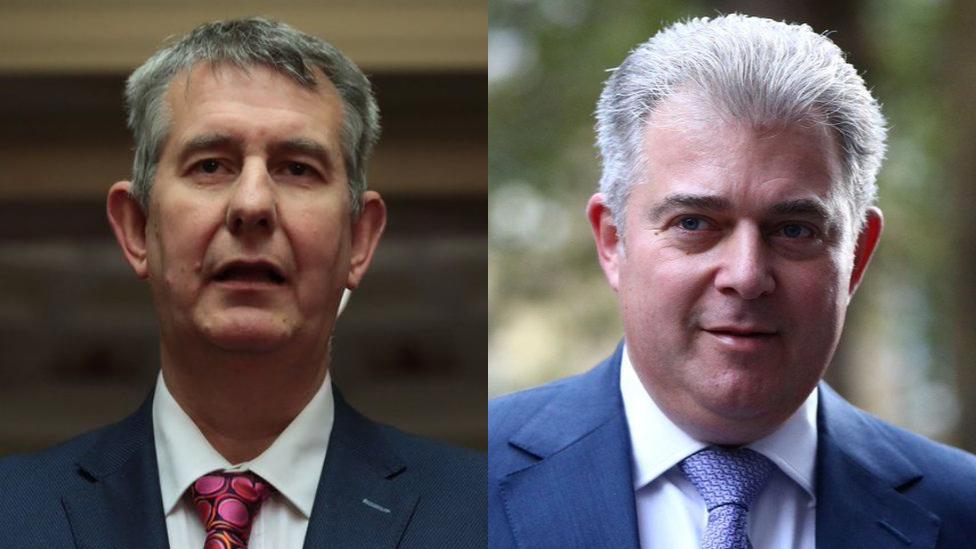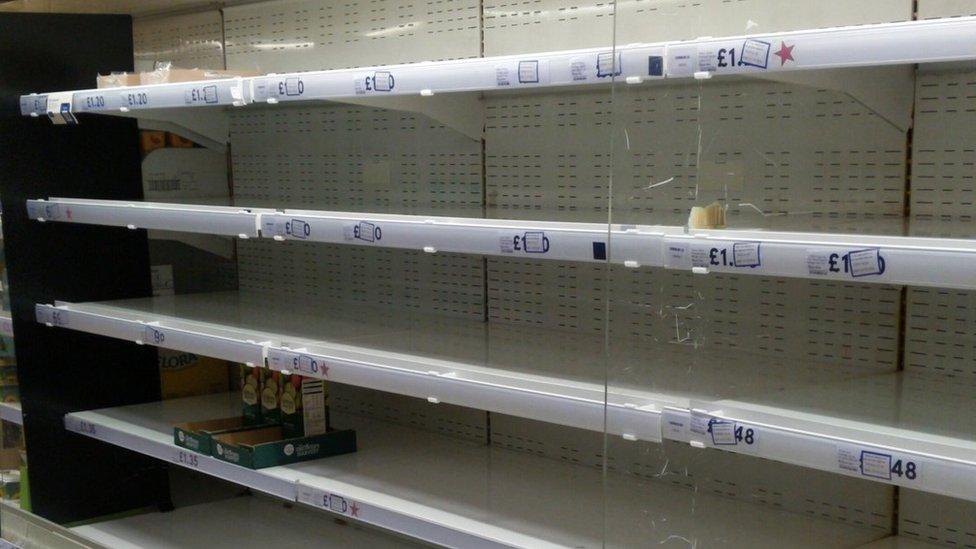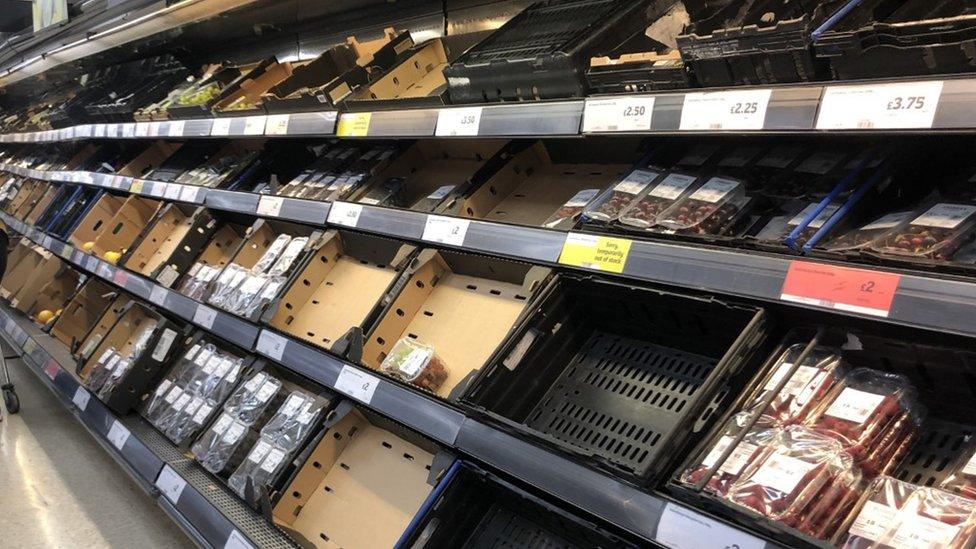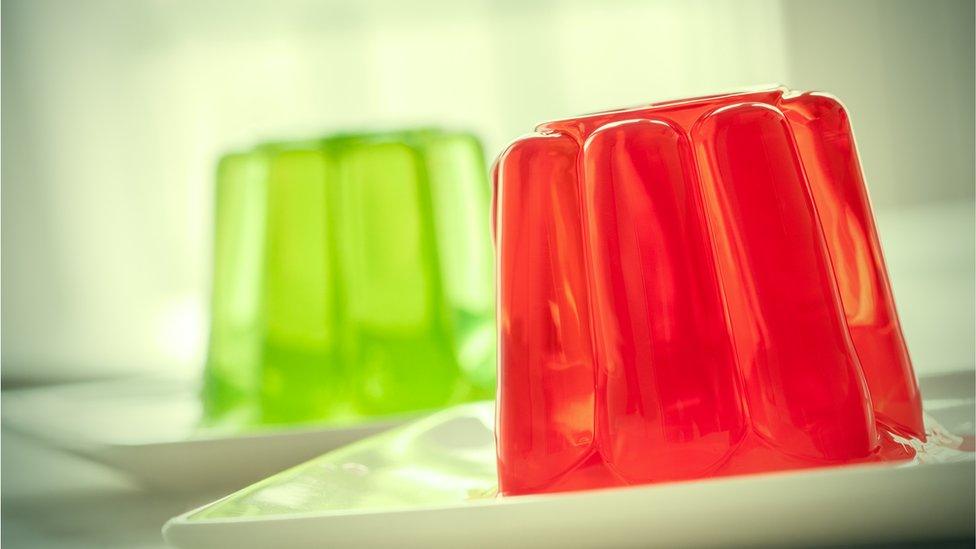Brexit: NI secretary 'like emperor with no clothes'
- Published

Edwin Poots (left) said Brandon Lewis should reflect on his comments
Stormont's agriculture minister has hit back at a claim by the NI secretary that trade disruption across the Irish Sea is due to Covid-19 and not Brexit.
On Tuesday, Brandon Lewis said images of empty supermarket shelves had "nothing to do with the Protocol".
But Edwin Poots said Brexit will affect the supply of many processed foods.
He described Mr Lewis as "the emperor with no clothes - but instead of a small boy pointing out he's naked, the whole crowd is pointing it out".
Brexit: NI secretary "like the emperor with no clothes"
The minister told the Stormont Assembly: "We know what the problems are, and what they emanate from and that they need to be dealt with."
Mr Poots also called for Mr Lewis to reflect on his comments.
The Northern Ireland Protocol means the nation follows EU rules on matters like animal product standards, which creates extra paperwork on goods travelling from Great Britain.
Salient or scaremongering?
A temporary grace period to allow supermarkets time to phase in the new checks is due to end on 31 March.

Brandon Lewis said empty shelves in Northern Ireland supermarkets were not due to the NI Protocol
Mr Poots has claimed several times that action is needed to avert "a major crisis" over food supplies at the end of the grace period.
Political opponents have accused him of scaremongering.
On Tuesday, Mr Lewis told BBC's Radio 4 Today Programme that the UK hoped to agree a permanent solution with the EU over the next few weeks on how to manage the checks and supply chains for Northern Ireland's supermarkets.
The EU said it had no comment to make.
NI Brexit: 'Food supply issues not down to protocol'
The NI secretary also insisted that he had spoken to supermarkets and that there were currently "good supply lines".
But Ulster Unionist leader Steve Aiken said there was a problem that was getting worse, not better.
"Rather than perpetuating the myth that 'there's nothing to see here', the secretary of state would be much better off doing everything he can to achieve the necessary derogations that we need, not just for a few weeks, but for a year at least," he said.
"As with most problems in life, ignoring it and hoping it goes away is not an advisable strategy.
"When it comes to empty shelves in supermarkets and food supplies, it is a truly awful strategy and a dangerous one at that."
Related topics
- Published12 January 2021

- Published18 January 2021
